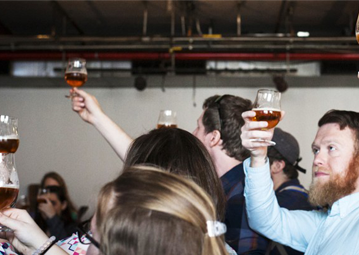
The monopolies are coming. In almost every economic sector, including television, books, music, groceries, pharmacies, and advertising, a handful of companies control a prodigious share of the market.
The beer industry has been one of the worst offenders. The refreshing simplicity of Blue Moon, the vanilla smoothness of Boddingtons, the classic brightness of a Pilsner Urquell, and the bourbon-barrel stouts of Goose Island—all are owned by two companies: Anheuser-Busch InBev and MillerCoors. As recently as 2012, this duopoly controlled nearly 90 percent of beer production.
This sort of industry consolidation troubles economists. Research has found that the existence of corporate behemoths stamps out innovation and hurts workers. Indeed, between 2002 and 2007, employment at breweries actually declined in the midst of an economic expansion.
But in the last decade, something strange and extraordinary has happened. Between 2008 and 2016, the number of brewery establishments expanded by a factor of six, and the number of brewery workers grew by 120 percent. Yes, a 200-year-old industry has sextupled its establishments and more than doubled its workforce in less than a decade. Even more incredibly, this has happened during a time when U.S. beer consumption declined.